ANDROSCOGGIN VALLEY DENTAL
ANDROSCOGGIN VALLEY DENTAL
Welcome To

Androscoggin Valley Dental
WHERE YOUR SMILE IS OUR PASSION
Experience exceptional dental care with a personal touch:
Androscoggin Valley Dental – Your Gateway to a Radiant Smile!
Our skilled and caring team is dedicated to delivering top-notch dental services and preventing oral health issues. With comprehensive dentistry, we enhance your overall well-being, elevating your quality of life in the breathtaking Androscoggin Valley.
Meet Dr. Gulati & Dr. McCormack, the warm-hearted professionals at Androscoggin Valley Dental, who forge lasting connections with patients. Discover our wide range of services on our user-friendly website and book an appointment with your new Berlin dentist. Immerse yourself in our empathetic care and witness the transformation firsthand.
AT ANDROSCOGGIN VALLEY DENTAL EVERYONE IS WELCOME AND YOU WILL ALWAYS LEAVE WITH A BETTER VERSION OF YOUR SMILE
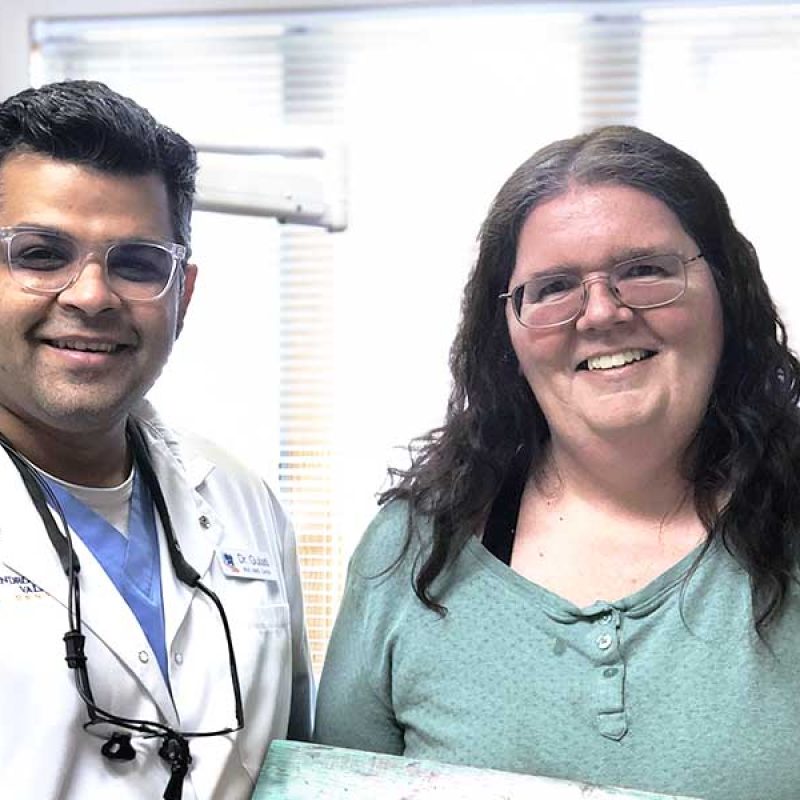


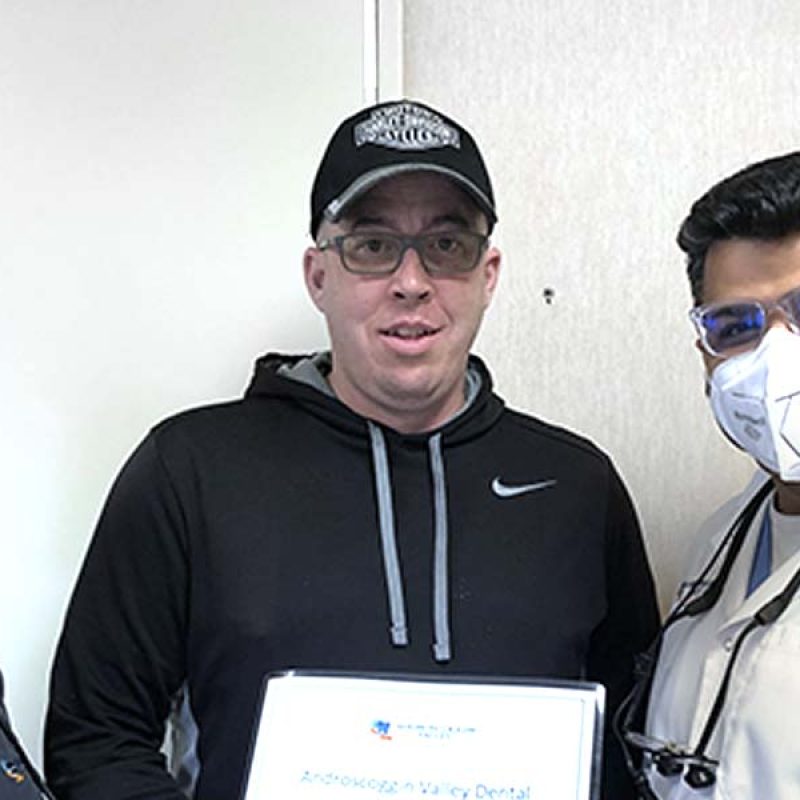
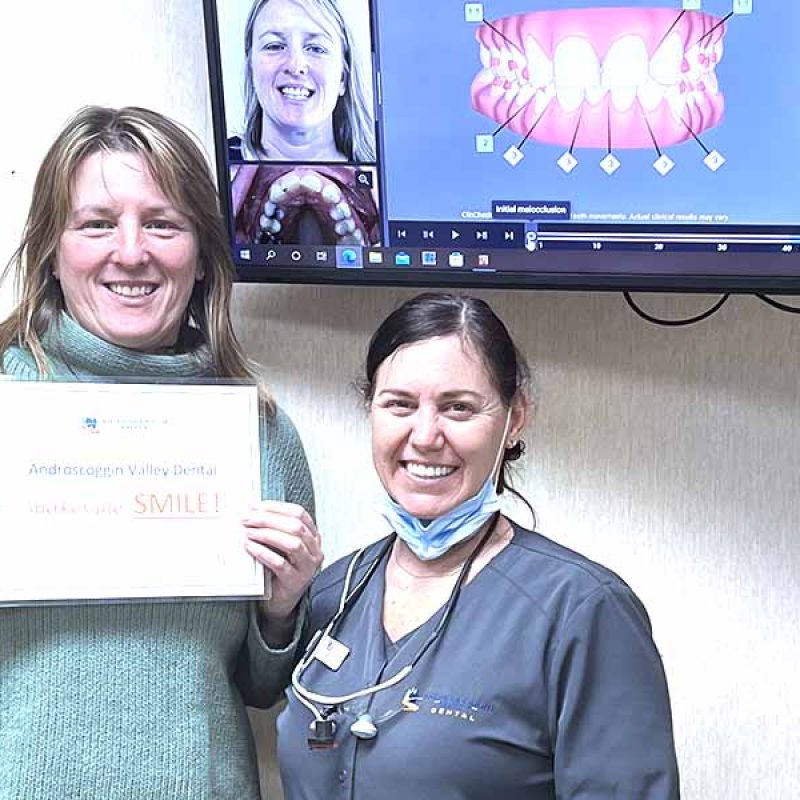




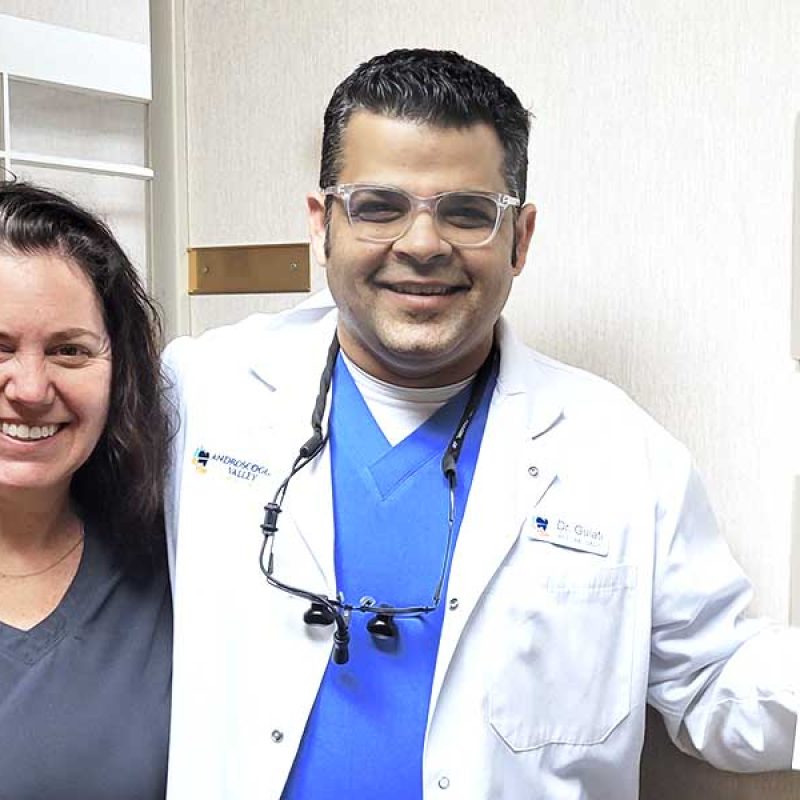


MEET YOUR DOCTORS

Meet
Dr. Gulati

Harry Gulati, DMD (aka Dr. G)
Skilled dentist: Dr. Harry Gulati specializes in preventive and restorative dentistry. He lectures globally, holds degrees from Tufts University and Boston University, and is an adjunct associate professor at Tufts. Dr. G actively engages in community service and supports local businesses. He is a peer-reviewer, affiliated with prestigious dental organizations, and proficient in restorative procedures. A cook and outdoor enthusiast, he’s won the North Conway Chili Cookoff twice.

Meet Dr. Christopher McCormack, D.M.D.
Dr. Christopher McCormack, a passionate scientist, found his calling in dentistry after shadowing in a Boston practice during his undergraduate studies. He graduated with honors from the University of Massachusetts Amherst and then attended the Boston University Henry M. Goldman School of Dental Medicine. Dr. McCormack is a member of the Massachusetts Dental Society and American Dental Association. He joins Androscoggin Valley Dental, bringing his dedication to providing exceptional dental care. In his free time, he enjoys family, hiking, and traveling with his fiancée. Welcome, Dr. McCormack!
Meet
Dr. McCormack
ANDROSCOGGIN'S
FEATURED SERVICES

INVISALIGN®

TEETH WHITENING

DENTAL IMPLANTS

COSMETIC DENTISTRY
Cosmetic dentistry focuses on enhancing the appearance of teeth, gums, and smile through various procedures.
FAMILY DENTAL, COSMETIC DENTAL & ORTHODONTICS SERVICES

“The attentiveness and care of both the dental assistant and the Dr. are exemplary and they showed compassion towards me, I wasn’t just another dollar sign to them. They explained options and reasons for each option. The atmosphere is homey and friendly. So glad we found this Dentistry. Thank you Androscoggin Valley Dentistry.”
Phillip
Codetic
WE ALSO SPECIALIZE IN INVISALIGN
Unlock Your Perfect Smile with Invisalign: The Clear Path to Confidence
Discover the revolutionary Invisalign system, the modern solution to achieving a straighter smile without the hassle of traditional braces. Invisalign uses a series of virtually invisible aligners to gradually and comfortably shift your teeth into their desired positions. Say goodbye to metal brackets and wires, and embrace the freedom of clear, removable aligners that fit seamlessly into your lifestyle. With Invisalign, you can straighten your teeth discreetly and confidently, enjoying the benefits of improved oral health and a radiant smile. Join millions of satisfied patients who have transformed their smiles with Invisalign and take the first step towards the smile you’ve always dreamed of.
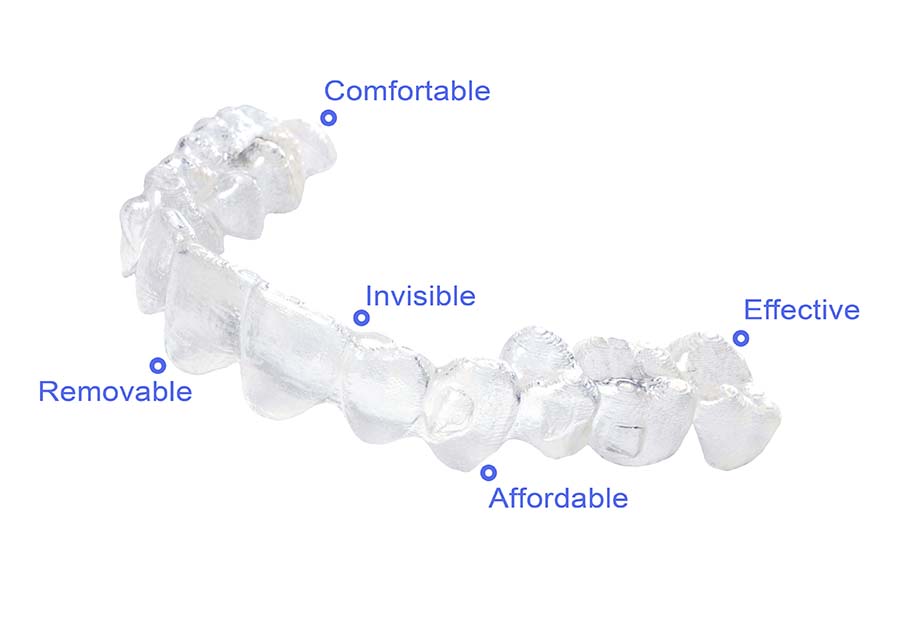

Invisalign uses a series of virtually invisible aligners
Invisalign uses a series of virtually invisible aligners to gradually and comfortably shift your teeth into their desired positions.

A Clear Alternative to Traditional Braces
Invisalign aligners are removable, which means you can easily take them out when eating, drinking, or brushing your teeth.

Minimal Impact on Your Day-to-Day Lifestyle
Whether you have a special event or need to give a presentation, you can remove the aligners temporarily for those important moments.






